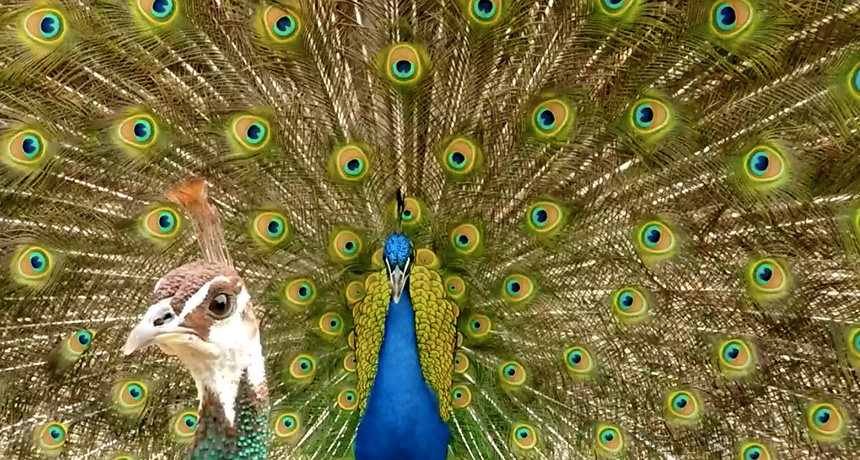Peacocks twerk to shake their tail feathers

Peacocks know how to twerk it to attract females.
During mating season, a flamboyant fowl will raise his iridescent train, shake his wings and vibrate his fan. Such displays can go on for hours.
Biologist Roslyn Dakin of the University of British Columbia in Vancouver teamed with physicist Suzanne Kane of Haverford College in Pennsylvania and other collaborators to break down the basic biomechanics of this shimmy show, known as rattling. The team also investigated a related peacock move called shivering — a reshuffling of feathers akin to a dandy combing his hair — that occurs before females arrive.
The researchers recorded feral peafowl (Pavo cristatus) in action with a high-speed video camera and studied feathers in the lab. Rattling birds literally shake their shorter, stiff tail feathers to strum their fanned-out train, making the train feathers vibrate at the same high frequency (25.6 hertz on average), the team reports April 27 in PLOS ONE. This frequency sweet spot generates a loud rustling noise — also part of the show. Although the scientists saw variety from bird to bird, individual peacocks tended to vibrate their feathers at a consistent frequency. Males with longer trains vibrated at slightly higher frequencies than those with shorter ones. Shivering involved lower-frequency feather vibrations than rattling.
Despite all this gyration, the eyespots stay still thanks to tiny hooks that lock the eyespot barbs together. “It isn’t just beautiful,” Kane explains. “It acts like a single mass at the top of the feather.”
Previous studies have shown that males with more iridescent eyespots have better game. High-frequency shimmying might be indicative of a male’s health or muscle power, Dakin says. But how the female perceives the total package remains to be studied. “One has to wonder what it’s like to be a female seeing this for the first time,” she says.